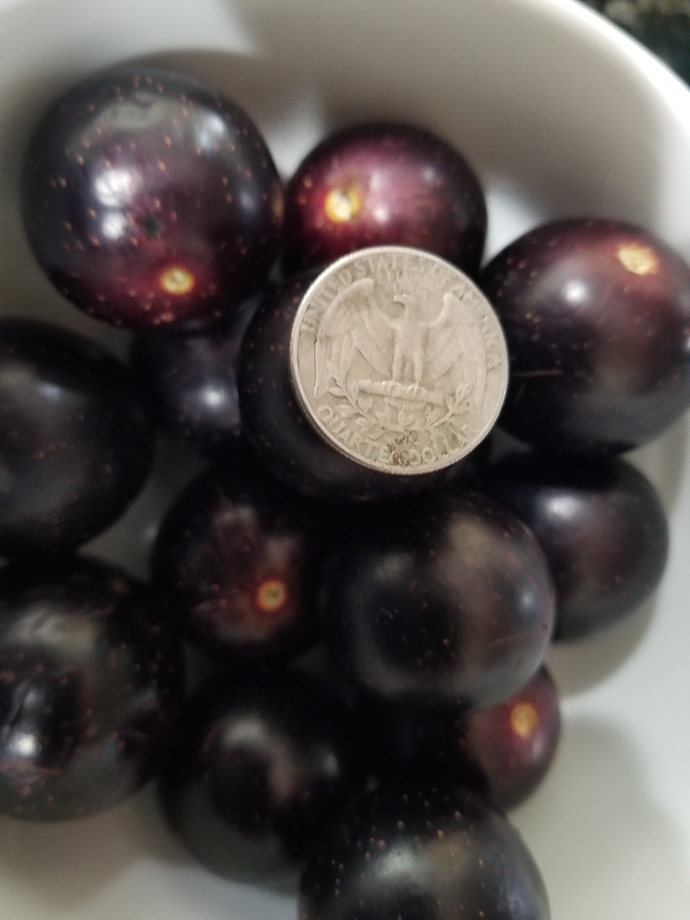It is a shame that I missed eating some of the best muscadines until I was in my senior years. The good news is that they quickly start fruiting. I will be adding two more muscadines to my orchard that are in my opinion the best (Supreme and Black Beauty). Another variety that I have already added is the slightly smaller fruited Lane which is similarly good tasting but earlier ripening. I have eaten many wild muscadines and several were good but the ones I mentioned sets a high bar for comparison.
I have 4 varieties of muscadines that I’ve been growing about 10 years. They are Darlene, Supreme, Black Beauty and their pollinator is Dixie Red. Now there are 2 fairly new varieties that are seedless. They say RazzMatazz has been around a few years. The other is brand new and named OhMy! Both are new to me and do not require a pollinator. I’m trying to find where to get them now. Being seedless would seem to be a game changer. TTom
Look on Gurney’s website. Ka-ching!
Editing to add that I see quite a few disparities with that patent. The gobbledygook description is intended to obscure the exact method by which the plant was produced. The claim is extended to any offspring that share the genetics for seedless fruit. This sounds like an attempt to patent the genetic modification for seedless fruit. Plant patents are not generally able to patent genetics. I’ll leave it to readers to figure out what is actually being done.
If my organic corn was wind pollinated by Monsanto GMO pollen, could I be sued? That is, if I then replanted or sold the corn for seed.
I haven’t read many patents but there are several ‘new’ pecan varieties that are patented and propagation is supposed to be prohibited. TTom
I think you are missing the point TTom. A plant patent covers the specific plant, but allows it to be used in breeding work. In other words, breeders can take advantage of the genetics. Any conventionally propagated variety can be used in this manner legally. GMO plants on the other hand carry a general utility patent which means the genetics cannot be used via standard propagation methods. This is how Monsanto maintains their monopoly on GMO corn varieties for example.
BambooMan, please read about Percy Schmeiser. Percy Schmeiser - Wikipedia
Hehe, I’ve seen him on a few Netflix documentaries. I don’t grow corn. The idea of patenting pollen or a seed that may contain these seedless genes is a little disturbing.
I was unaware of the general utility patent that Monsanto holds on their products.
First try of muscadine. Large, firm, thick sour skin, 3 seeds, and taste like a mild concord grape. Not bad but can’t beat cotton candy grape or Golden Muscat.
Hi Frutility,
Could I get more information from you on your grafting processes
Dennis
Kent, wa
